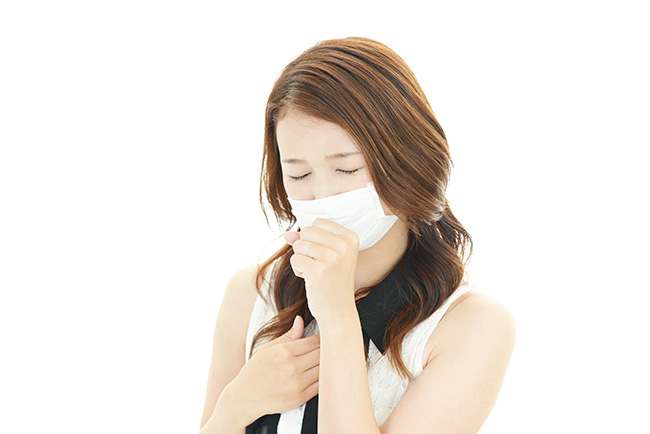Notes for treatment
- Tuberculosis (TB) is a curable disease when treated with anti-TB medication for at least 6 months.
- Do not discontinue the medication if you feel unwell during anti-TB medication. Contact your medical staff or caregiver immediately to determine the cause and appropriate treatment, as intermittent use of the medicine may cause drug-resistant TB and worsen the condition.
- Follow the doctor's instructions to receive follow-up examinations (chest X-ray, sputum, and blood test) on time to monitor the progress of the disease.
- After taking anti-TB drugs (containing Rifampin or Rifabutin), the color of urine, sputum, feces, saliva and tears may turn tangerine, which is a normal reaction.
- Please measure your body weight before each visit, for drug dosage adjustment.
Notes for home care
- When sneezing or coughing, you should cover your mouth and nose with toilet paper to prevent droplets from spraying out. If you have sputum, you should wrap it in toilet paper and flush it down the toilet or throw it into a trash can with a lid for centralized treatment.
- The Infectivity to other people decreases dramatically after two weeks of anti- TB medication. If you need to go to public places (including for medical treatment), you should wear a surgical mask. Change your mask at least once a day. Change it immediately if it is soiled or damp.
- Maintain good indoor ventilation, change the patient's bedding and clothing regularly, and disinfect it by sun exposure for 4-6 hours.
- Do not take traditional Chinese medicine privately during medication. Quit smoking and alcohol, so as to avoid seriously affecting liver and lung function.
- If there is no cardiovascular, kidney or other water-limiting diseases, please consume 1500 C. C. to 2000 C. C. of water per day.
- Sputum smear-positive TB patients who have not received directly observed treatment short course (DOTS) for 14 days or who have not been proved to be free from infection by other evidenc. It is not allowed to go abroad by public aircraft with a single flight oner eight hours.
- In the first year after treatment, follow-up chest X-rays will be performed every six months, and then follow-up chest X-rays will be performed once a year thereafter.
Possible adverse reactions after anti-TB treatment
- Allergic reactions (e.g., rash and itchy skin), gastrointestinal discomfort, nausea, vomiting, liver dysfunction (e.g., fatigue, nausea, vomiting, decreased appetite), peripheral neuritis (numbness or tingling in the extremities), blurred or impaired vision, abnormal hearing, headache, dizziness.
- Patients with gout should be aware of gout episodes during medication.
- If any of the above symptoms appear, you should inform your doctor or case-manager as soon as possible, who will make a diagnosis, give treatment and adjust the medication. Do not change the dosage or stop the medication without permission.

Dietary precautions
- TB patients may often feel loss of appetite due to disease and drug reactions. It is advisable to supplement adequate water and eat a balanced diet, small meals throughout the day, and choose light, diversified food, in order to increase appetite.
- Get extra protein and calcium, such as milk or yogurt, to improve your nutrition.
- During the use of Pyrazinamide, try to reduce the number of purines in food, limit the intake of purines to avoid gout attacks. High-purine foods: dairy and its products, viscera, beans, seafood, and vegetables: bean seedlings, green bean seedlings, asparagus, mushrooms, laver, and other: soup-stock, chicken essence, yeast powder, strong gravy juice, beef juice.
The public health center cares for you and your family's health
- Public health case-mangier will provide relevant health education and give a "smart care card" when registering a case. The card is used as a proof of payment reduction of TB treatment. During the management period, it should be kept properly. The card should be carried when returning to the clinic. It can provide the doctor to query and maintain the diagnosis and treatment information. When the treatment course is finished Card must be returned.
- After meeting the requirements for contact examination, your family members and relatives will be provided with a "TB contact referral form." Please bring the form to the pulmonary division or the infection disease division of the medical institution for chest X-ray examination.
You are advised to join the DOTS program
- DOTS caregivers are assigned by the nurses in the public health centers in your district to deliver the medicine from Monday to Friday. The destination for the delivery service can be determined according to your needs, reminding you not to forget to take the medicine and caring for your physical condition.

